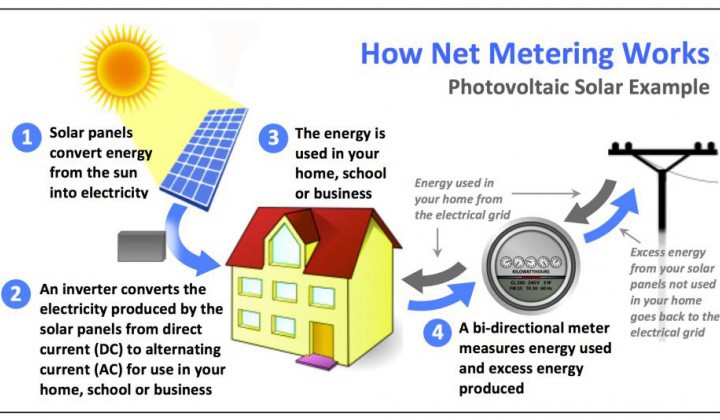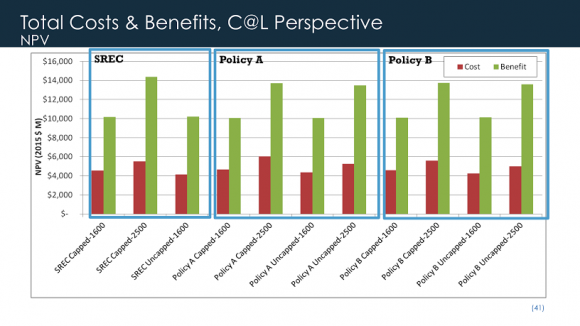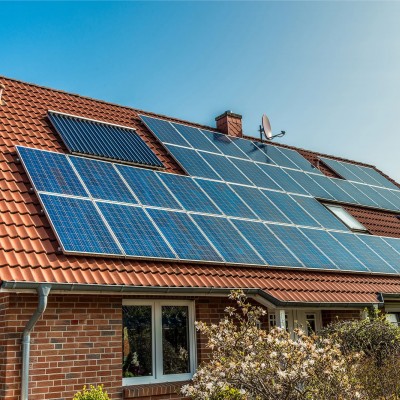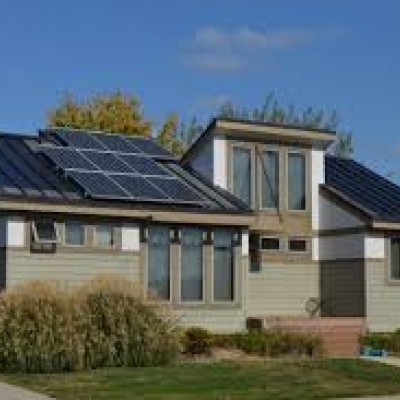#SolarisWorking! Now tell Speaker DeLeo to Sun Up.

This week, bipartisan leaders in the Massachusetts Senate acted to lifted a cap on solar net metering. Net metering is the way we buy and sell the sun’s energy in the Bay State (and most of the country) and it’s a solid system for compensating solar owners and other users for what they generate. Caps on solar net metering hinder municipal, low-income, community shared and other solar projects from proceeding, meaning that cities and towns can’t save money and those who most need relief on their bills are boxed out of our clean energy economy. A major Boston energy company has estimated 10-20 industry jobs are lost PER DAY that these caps go unaddressed, and clean energy investors are fleeing the state–if they haven’t already. The Senate’s action was important, and while it needs some important tweaks to secure community and low-income solar’s place on the power grid, it does give them consideration and represents a strong leadership step. It’s time for the Massachusetts House to act and lift the solar net metering cap.
Why the delays on solar? We have two sets of problems. First, the state is trying to grapple with the phase-out of coal and nuclear power plants, and is now considering policies around just about every other energy resource you can think of. The Speaker’s office wants to do an omnibus bill and high-ranking leaders have released their own proposals (quick summary: really great on offshore wind, really bad on subsidies for gas from the Marcellus Shale). Oh yeah — it’s also worth mentioning the Governor is pretty focused on Canada right now and is kind of grumpy about solar power credits. We’ll have to talk more about Charlie Baker another time.
The second set of problems rhyme with “unnatural bid” and “neversource spendergy.” Welcome to the privatized power grid! In Massachusetts, National Grid in particular is fighting to suppress solar power. (Venture down into Connecticut and you can watch Eversource fight community solar tooth and nail to prevent that state from replicating our state’s existing accomplishments). In the Bay State, caps on solar have been hit in National Grid territory and the utility is doing everything it can to keep them in place.
As I wrote about in Commonwealth Magazine, utilities across the country are engaged in a war on solar. Grid’s stance as a comparably green entity in a broken and extractive industry puts them in a tricky position as renewable energy increases. They do have more solar on their turf than Eversource – in large part because the land, the grid infrastructure and their rate design is more amenable to solar. Fundamentally, the utility makes its money from transmission lines, gas service lines and distribution revenues, all of which solar cuts into.
It is absolutely ludicrous for a company that passes along the cost of lost gas and is trying to get electric customers to subsidize the expansion of interstate gas pipelines to talk about ratepayer justice. But beyond that, they’re wrong about solar. First off, let’s be clear what the state’s task force on solar, which the utilities sat on, said.

Notice how the green bars outsize the red? This is an economic breakdown of the benefits to the Commonwealth at Large. Every scenario shows solar coming out on top. We find the same in studies of solar net metering itself, and the Attorney General recognized this when she testified in support of lifting the net metering cap. (Check out the table on page two of this PDF for a brief list of the benefits and costs of solar and net metering). Moreover, the task force recognized that the MOST expensive scenarios in the future would involve keeping the solar caps in place!
Net metering is not a subsidy. It’s a payment for energy provided and the corresponding benefits to the grid from fuel costs saved, avoided infrastructure costs and avoided power losses from generating energy closer to where it’s used. Renewable Energy Certificates, credits on top of net metering are a subsidy, in the same way that, as a matter of public policy urban users subsidize rural communities’ electric infrastructure or well-to-do people help fund fuel assistance. We have decided, as a state, that clean energy deserves public support.
If, from this whole equation, negative rate impacts exist on any electric customer, they are minimal and we can address them through a progressive, systemic change to solar policy and the way we pay for power generally. We need a better way of distinguishing the maintenance of the distribution grid from transactions of energy itself – not utility-backed fixed charges on solar that would disincentivize energy efficiency and, according to the National Consumer Law Center, have serious consequences for low-income energy users.
As we makes these changes, we should be working to expand access to clean energy for the low- and moderate-income communities who operate, in so many ways, at the fringes of our economy. Economic justice powerhouses like Neighbor to Neighbor and the Coalition for Social Justice strongly support solar, and it has been an honor to work alongside them. These are the people who brought you the nation’s finest minimum wage, and the ones with whom my own employer has recently signed on to help reform the state’s criminal justice system. The Dismas House, a nonprofit in Worcester that helps provide reentry services to people exiting the carceral system, is a strong supporter of solar because it helps them save on their bills and fund their programs. They have a stalled solar project right now.
Caps on net metering directly disenfranchise the customers National Grid is claiming to protect by preventing projects that reduce costs for low-income housing complexes or create opportunities to buy into off-site solar gardens. When they say lifting the caps is unnecessary for development, they’re talking about suburban homeowners with perfect roofs, good credit and no shade. Net metering caps also have horrific consequences for the rest of our economy, including for municipalities and businesses that want to go solar for stable, predictable energy costs.
When one of National Grid’s staffers, speaking with horror, recently testified at a public hearing that “We’d see solar grow by 1 percent per month” if the net metering cap was lifted (does that sound so bad?) I had to ask myself if they have completely lost sight of what we all need to do – go green as fast as possible, bringing everyone along with us. Some of us enviros are aiming for a new solar target, getting Massachusetts to, along with the incorporation of battery storage and grid upgrades, go 20% solar by 2025. According to National Grid’s terrified pronouncement, maybe we should be aiming for 2016 instead.
I live in Dorchester and work for Clean Water Action. We like democracy and clean energy and clean water. Find me on Twitter @joelwool. Also, my friends over at Environment Massachusetts have been organizing a multi-city tour to support solar power and will be landing in Boston next Thursday. Join the pro-solar crowd at a beach-party themed rally in Boston to Soak Up the Sun, and in the meantime, maybe give Speaker Deleo a holler.
This post originally appeared on Blue Mass Group.


